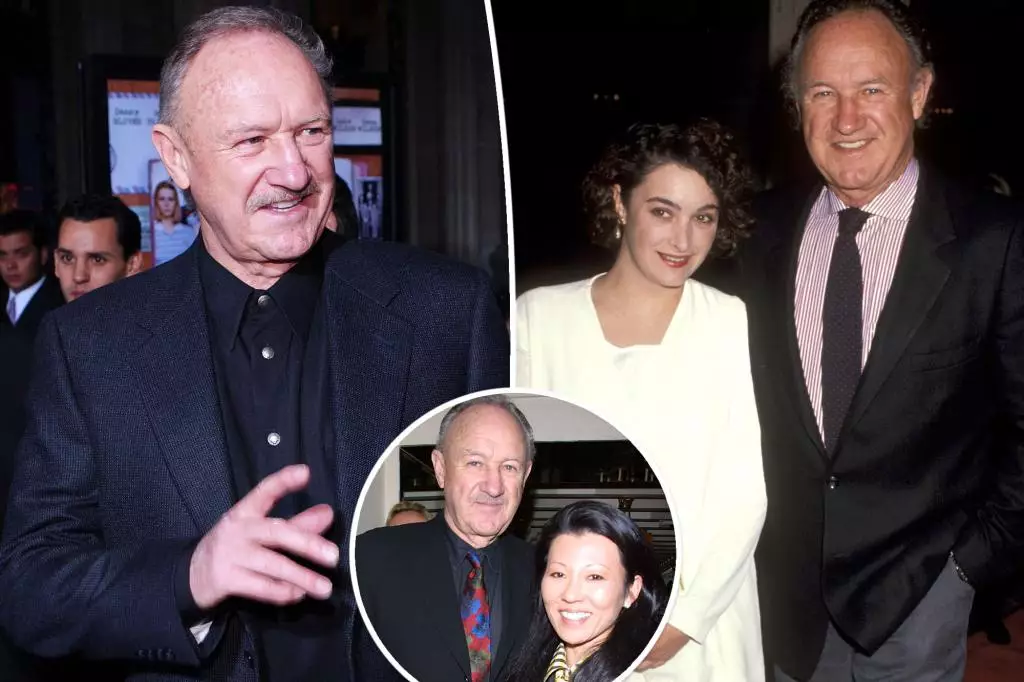The world of cinema has been shaken by the unexpected death of Gene Hackman, a titan of the film industry known for his unforgettable performances in classics such as “The French Connection” and “Unforgiven.” His passing at the elder age of 95, along with his wife Betsy Arakawa, has left fans and family alike grappling with the paradox of shock and acceptance. Leslie Hackman, Gene’s daughter, provided insights that illuminate the complexity of this loss. Despite Hackman’s impressive physical health, Leslie expressed her understanding that his advanced age naturally rounds out an ominous expectation of mortality. The juxtaposition of her father’s vitality with the reality of death serves to underline the often-inevitable fate that even the healthiest among us cannot escape.
A Life Well-Lived: Health and Happiness
Leslie emphasized that her father maintained a robust lifestyle, engaging in activities such as Pilates and yoga, which kept him physically active well into his twilight years. The portrayal painted here is one of vigor and commitment to health, a stark contrast to the untimely death he encountered. It prompts questions about how active engagement in life habits can coexist with unforeseen tragedy. Leslie’s familial closeness and regular interactions underscore a meaningful bond, despite the distance created by geographical differences. She described feelings of normalcy prior to the tragedy, a reminder of how day-to-day life can seem unremarkable until it changes overnight.
The circumstances surrounding Gene and Betsy’s deaths remain enigmatic, with various theories presented by family and authorities. The apparent lack of obvious signs of foul play paired with the sudden and tragic nature of their deaths raises more questions than answers. An examination of Leslie’s commentary hints at the possibility of carbon monoxide poisoning, albeit with limitations to the evidence supporting it. This notion brings a chilling layer to the narrative, suggesting that the end could have been peaceful, devoid of suffering, as Leslie mentioned. The idea of bodies being discovered with pets adds an additional layer of heartbreak, evoking memories of companionship and loyalty even in life’s concluding moments.
Gene Hackman’s career spanned decades, leaving an indelible mark on Hollywood and influencing many who followed. As a celebrated Oscar-winning actor, his contributions extended beyond performances; he became a cultural icon. The news of his demise, therefore, holds significance that transcends personal grief, as it marks the conclusion of an era in film history. Leslie’s reflections serve as a poignant reminder that every legacy is accompanied by profound loss, wherein public admiration meets private sorrow.
Leslie and her sister Elizabeth’s joint statement on their father’s death brings a collective perspective to the mourning process, uniting familial bonds in a time of tragedy. As they draw attention to the importance of honoring Gene’s memory, we are reminded of the fragility of life and the enduring power of shared experiences.
In the aftermath of such a sudden and disheartening event, the wider implications of Gene Hackman’s death resonate deeply. For movie enthusiasts, the remembrance of his compelling performances will continue to evoke nostalgia and admiration. For his family, however, the journey through grief is only just beginning. It’s in this complex tapestry of life, health, legacy, and loss that we find ourselves contemplating not just the end of a cherished life but also what remains after a remarkable journey has come to a close.
Having delved into the layers of this narrative, one cannot help but reflect on the universality of loss, the multifaceted nature of health, and the deep connections that infuse our lives with meaning. Gene Hackman’s story may have reached its final act, but his contributions to film and the love of his family will live on, a beacon of inspiration amid the shadows of grief.

